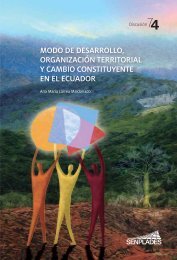1gGgw9ScK
1gGgw9ScK
1gGgw9ScK
Create successful ePaper yourself
Turn your PDF publications into a flip-book with our unique Google optimized e-Paper software.
6<br />
DOING BUSINESS 2014<br />
BOX 1.1 The right time to improve business regulations<br />
For the first time, this year’s report measures business regulations in Libya, Myanmar and South Sudan, economies that emerged<br />
from conflict or are starting to open up to the global economy after years of isolation. This is the right time to improve business<br />
regulations. Old laws and regulations still apply in Myanmar, including the Companies Act of 1914, the Code of Civil Procedure<br />
of 1908 and the Evidence Act, 1872. In Libya the civil code and the civil and commercial procedure codes all date back to 1953.<br />
In South Sudan the challenge is not updating old laws and regulations but creating new ones from scratch. This process takes<br />
time. Yet since independence in 2011, South Sudan has passed a company law, tax law and insolvency law.<br />
Doing Business provides baseline data that can help inform policy makers designing laws and their implementation. Data<br />
in this year’s report show that these 3 economies rank among the bottom 10 on the ease of doing business. Although their<br />
performance varies somewhat across Doing Business topics, the data consistently show that these economies have complex<br />
and costly regulatory procedures and weak institutions relevant to business regulation (see figure). But in all 3 economies new<br />
laws are under discussion that may affect future editions of the Doing Business data. Doing Business will continue to measure and<br />
monitor potential improvements.<br />
There are many areas for regulatory improvement in fragile and conflict-affected states<br />
Global ranking, by Doing Business topic<br />
Starting a<br />
189 171<br />
business<br />
189<br />
Resolving<br />
Dealing with<br />
insolvency<br />
construction<br />
112<br />
105 108 permits<br />
150<br />
Enforcing<br />
Getting 68<br />
contracts 118<br />
77 electricity<br />
Libya<br />
Trading<br />
143<br />
89<br />
across<br />
93 Registering<br />
borders 64<br />
property<br />
189<br />
116<br />
133<br />
113<br />
Paying taxes<br />
Getting credit<br />
186<br />
Protecting<br />
investors<br />
187<br />
South<br />
Sudan<br />
189 Starting a<br />
Resolving business Dealing with<br />
insolvency 140 construction 171<br />
permits<br />
124<br />
87 Enforcing 134 117135 Getting 184<br />
contracts 123<br />
electricity<br />
Trading 141 121<br />
187 across<br />
Registering<br />
borders<br />
property 183<br />
126<br />
113<br />
114<br />
Paying taxes<br />
Getting<br />
credit<br />
92<br />
Protecting<br />
investors 180<br />
182<br />
Libya<br />
Middle East &<br />
North Africa<br />
South Sudan<br />
Sub-Saharan<br />
Africa<br />
189<br />
Starting a business<br />
155 Resolving<br />
insolvency<br />
150 Dealing with construction<br />
100 permits<br />
108<br />
188 Enforcing<br />
76<br />
126 Getting electricity<br />
contracts 91 79<br />
75<br />
113 Trading across<br />
92 154 Registering<br />
borders 73 81 property<br />
86<br />
107 Paying taxes<br />
Protecting<br />
investors<br />
182<br />
170 Getting credit<br />
120<br />
Starting a business<br />
Resolving 135 Dealing with<br />
189<br />
insolvency 112 construction<br />
105<br />
permits<br />
Enforcing<br />
contracts<br />
108<br />
Getting electricity<br />
179 118 77 82<br />
147 Trading across 89 64 93 Registering<br />
borders<br />
133<br />
property 82<br />
113 Getting credit<br />
Paying taxes<br />
180<br />
120 Protecting<br />
investors<br />
115<br />
Myanmar<br />
Myanmar<br />
East Asia &<br />
Pacific<br />
Syrian<br />
Arab<br />
Republic<br />
Syrian Arab<br />
Republic<br />
Middle East &<br />
North Africa<br />
Note: Numbers are economy and regional average rankings, with 1 denoting the highest ranking on a topic and 189 the lowest.<br />
Source: Doing Business database.<br />
In economies affected by conflict, reforming business regulations is almost always a difficult task—even as firms often face<br />
increasing challenges in the business regulatory environment. Civil strife, a substantial weakening in the state’s ability to enforce<br />
the law and other characteristics of conflict-affected states often bring about a substantial worsening of the conditions in which<br />
the private sector operates. The Syrian Arab Republic was the economy that showed the greatest deterioration in 2012/13 in<br />
the areas measured by Doing Business. The time and cost associated with trading across borders increased substantially, for<br />
example, and no building permits are being issued in Damascus, making it impossible to legally build new construction.<br />
Yet there is encouraging news from other fragile and conflict-affected states. A recently published report, Doing Business in<br />
the g7+ 2013, shows that all economies in the g7+ group have improved their business regulatory environment since 2005,<br />
narrowing the gap with the best performance observed globally by Doing Business. a Sierra Leone, Burundi, Guinea-Bissau,<br />
Timor-Leste, Côte d’Ivoire, Togo and the Solomon Islands are all among the 50 economies making the biggest improvements<br />
between 2005 and 2012.<br />
a. A special report, Doing Business in the g7+ 2013 compares business regulations in economies of the g7+ group: Afghanistan, Burundi, the Central African<br />
Republic, Chad, the Comoros, the Democratic Republic of Congo, Côte d’Ivoire, Guinea, Guinea-Bissau, Haiti, Liberia, Papua New Guinea, Sierra Leone, the<br />
Solomon Islands, South Sudan, Timor-Leste and Togo. The g7+ group is a country-owned and country-led global mechanism established in April 2010 to<br />
monitor, report and draw attention to the unique challenges faced by fragile states.



